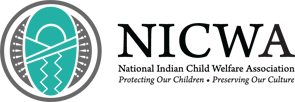Amplifying Tribal Voices: NICWA Testimony for the 26th Annual Department of Health and Human Services Tribal Budget Consultation
Investing in tribal services aimed at intervening early or preventing child abuse and neglect has far-reaching implications for the well-being of Native children, families, and communities. However, the current federal investment in child welfare has long been skewed towards crisis interventions, perpetuating a cycle of ineffective interventions and repeated contacts with the child welfare system. It’s time for a paradigm shift, one that prioritizes early intervention and prevention, empowering tribal nations to provide culturally appropriate services that resonate with their communities. Recently, NICWA took a step forward by providing written testimony before the U.S. Department of Health and Human Services (HHS) for their 26th annual tribal budget and policy consultation.
The annual HHS tribal budget consultation, held in March or April, serves as a crucial platform for tribes and urban Native programs to voice their needs and priorities regarding HHS-funded programs. The budget consultation marks the beginning of HHS’s development of the budget that will be sent to Congress the following year and allows tribal nations and urban Native programs to provide information on the need for HHS funding, priorities, and funding level recommendations.
This year, on April 9-10, 2024, tribal leaders and advocates for Native children provided input on funding levels, program priorities, and legislative recommendations. Among them, Vice Chairwoman Loni Greninger (Jamestown S’Klallam Tribe) provided NICWA’s testimony by underscoring our commitment to advancing the well-being of Native children and families. NICWA’s testimony includes funding and legislative recommendations that aim to provide tribal nations with more workable funding levels after years of little or no increase. These recommendations also strive to improve outcomes for American Indian and Alaska Native children and families, whether in tribal or state systems.
For more information
NICWA Director of Government Affairs and Advocacy
desimmons@nicwa.org
